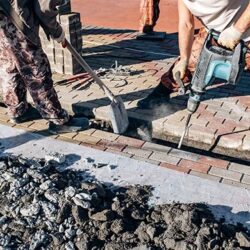A reliable hot water system is one of the unsung heroes of comfort in any home. When it works well, you barely notice it. But when things go wrong, cold showers, leaks, strange noises, you know it’s time to pay attention. If you’re unwinding in your home in or around Canberra and wondering whether to call in for hot water replacement canberra, here are the key signs, considerations, and tips to help you decide when to replace your system.
Recognising the Warning Signs
To avoid the shock of a sudden breakdown, watch out for warning signs that your hot water system is failing.
- Age of the system: Most storage hot water systems last around 10 to 15 years; continuous flow (on‑demand) units often last a bit longer if well maintained. When your system is reaching that age range, efficiency tends to drop.
- Frequent breakdowns or repairs: If you’re calling for fixes often, faulty heating elements, thermostats, or leaking valves, it might be cheaper and more reliable to replace them than keep patching.
- Inconsistent hot water supply: Hot water that runs out quickly, fluctuates in temperature, or takes longer than usual to heat up are signs the system is struggling. Sediment build‑up, degraded internal parts, or failing components are common culprits.
- Rusty or discoloured water: If hot water appears with rust or discolouration, especially if cold water is clean, internal corrosion or a failing anode may be involved. It’s often a sign that the tank or internal lining might be compromised.
- Leaks or moisture: Water pooling near the base of the system, moisture around joints and valves, or visible rust and corrosion on external parts indicate structural issues. A leaking tank is especially serious and usually means replacement is needed.
- Rising energy bills: Older systems that lose efficiency require more energy to produce the same amount of hot water. If your energy bills are creeping up despite no major change in usage, you may be paying the price for fading performance.
Key Factors to Consider for Hot Water Replacement Canberra
Deciding to replace a hot water system is not just about spotting breakdowns; it’s about making smart choices that match your needs and circumstances.
- Type of system: Tank storage vs continuous flow (on‑demand) vs heat pump vs solar. Each has trade‑offs in cost, efficiency, space, and maintenance.
- Capacity: For households with more people, bigger bathrooms, or frequent high usage (baths, multiple showers), choosing a system with enough capacity is vital. Undersized systems waste energy and cause frustration.
- Energy efficiency: A modern, energy-efficient unit will cost more upfront but save on running costs. Choosing a unit with good energy ratings helps reduce energy bills and environmental impact.
- Installation location: Whether the system is indoors or outdoors, easy or difficult to access, and what the plumbing/gas/electric lines require. Installation complexity affects both cost and timeframe.
- Rebates and incentives: Some local programs or energy efficiency incentives may help offset costs. Always check what incentives or rebate schemes are available in and around Canberra for replacing electric, heat pump, or solar‑boosted systems.
Cost Implications and What to Budget
Replacing a hot water system involves several cost components.
- Unit cost: Depends on the type (storage tank, continuous flow, heat pump, solar), capacity, materials, and brand.
- Labour and installation: Includes removing old system, connecting new ones, any required plumbing or electrical adjustments, and compliance with local building codes.
- Permitting, compliance, inspections: In some cases, you’ll need local approvals or inspections, which add cost.
- Disposal: Removing and disposing of the old unit properly can also add to the cost.
- Long‑term savings: A more efficient system can reduce running costs, energy bills, and may be more reliable, reducing maintenance calls.
Choosing the Right Moment for Hot Water Replacement Canberra
Not every hot water issue calls for an immediate replacement. In many cases, a simple repair or component change can restore performance. However, when multiple warning signs start to appear—such as consistent leaks, rust build-up, fluctuating temperatures, strange noises, or frequent breakdowns—it’s often more practical and cost-effective to consider replacing the system before it fails completely. A proactive replacement helps you avoid unexpected cold showers, water damage, and costly after-hours emergency repairs.
Another key factor to consider is timing. Scheduling a replacement during milder weather—rather than in the middle of winter—can make the process smoother and potentially cheaper. During peak cold seasons, demand for hot water repairs and installations rises sharply, which can lead to longer wait times and higher service costs. Planning ahead ensures your new system is installed efficiently, with minimal disruption to your household.
Moreover, a timely replacement allows you to upgrade to a more energy-efficient model, such as a heat pump, solar, or high-efficiency gas system, which can significantly reduce your long-term running costs. Investing early not only improves reliability but also enhances performance and sustainability.
Ultimately, the best approach is to stay alert to your system’s condition and consult a licensed technician when signs of wear begin to appear. With the right timing and expert advice, you can make a smart decision that saves money, prevents stress, and keeps your household’s hot water flowing smoothly year-round.
Final Thoughts
If you’re experiencing any combination of persistent issues, rusty water, inconsistent heating, leaks, or old age, then hot water replacement canberra isn’t just a luxury; it’s a necessity. Replacing a failing system with a modern, efficient one improves comfort, safety and often results in cost savings over time. When you choose wisely, you ensure your home stays comfortable, warm and reliable for years to come.




